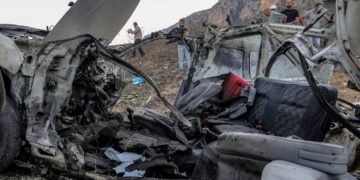UNITED NATIONS (news agencies) — The U.N. Security Council adopted a watered-down resolution Friday calling for immediately speeding aid deliveries to hungry and desperate civilians in Gaza but without the original plea for an “urgent suspension of hostilities” between Israel and Hamas.
The long-delayed vote in the 15-member council was 13-0 with the United States and Russia abstaining. The U.S. abstention avoided a third American veto of a Gaza resolution following Hamas’ surprise Oct. 7 attacks inside Israel. Russia wanted the stronger language restored; the U.S. did not.
Still, “It was the Christmas miracle we were all hoping for,” said United Arab Emirates Ambassador Lana Nusseibeh, who sponsored the resolution. She said it would send a signal to the people in Gaza that the Security Council was working to alleviate their suffering.
The resolution culminated a week and a half of high-level diplomacy by the United States, the UAE on behalf of Arab nations and others. The vote, initially scheduled for Monday, was pushed back each day until Friday.
A relieved U.S. Ambassador Linda Thomas-Greenfield told the council: “This was tough, but we got there.”
She said the vote bolsters efforts “to alleviate this humanitarian crisis, to get life-saving assistance into Gaza and to get hostages out of Gaza, to push for the protection of innocent civilians and humanitarian workers, and to work towards a lasting peace.”
“It is hard to overstate how urgent this is,” Thomas-Greenfield said. “This resolution speaks to the severity of this crisis, and it calls on us all to do more.”
The vote came immediately after the United States vetoed a Russian amendment that would have restored the call to immediately suspend hostilities. That vote was 10 countries in favor, the U.S. against and four abstentions,
Russia’s U.N. Ambassador Vassily Nebenzia called the resolution “entirely toothless” and accused the United States of “shameful, cynical and irresponsible conduct” and resorting to tactics “of gross pressure, blackmail and twisting arms.”
He said the resolution “would essentially be giving the Israeli armed forces complete freedom of movement for the clearing of the Gaza Strip.” Russia would have vetoed it, he said, if it hadn’t been supported by a number of Arab countries.
Thus the resolution was stripped of its key provision with teeth — the call for “the urgent suspension of hostilities to allow safe and unhindered humanitarian access, and for urgent steps towards a sustainable cessation of hostilities.”
Instead, it calls “for urgent steps to immediately allow safe, unhindered and expanded humanitarian access, and also for creating the conditions for a sustainable cessation of hostilities.” The steps are not defined, but diplomats said it was the council’s first reference to stopping fighting.
Ambassador Riyad Mansour, the Palestinian U.N. envoy, said it took the Security Council 75 days “to finally utter the words ‘cessation of hostilities,’” stressing that the Palestinians and Arab nations supported the Russian amendment.
“This resolution is a step in the right direction” because of its important humanitarian provisions, Mansour said. “It must be implemented and must be accompanied by massive pressure for an immediate cease-fire.”
Hamas called the resolution “an insufficient step” that “doesn’t meet the requirements of the catastrophic state caused by the terrorist military machine in Gaza.” The militant group accused the United States of defying the international community and blocking the council from demanding a halt to the war in the statement on its website.
Israel’s U.N. deputy ambassador Brett Jonathan Miller criticized the Security Council for not condemning Hamas for its Oct. 7 attacks in which about 1,200 people were killed and about 240 taken hostage.
The resolution more generally “deplores all attacks against civilians and civilian objects as well as all violence and hostilities against civilians, and all acts of terrorism.” It also demands the immediate and unconditional release of all hostages.
On a key sticking point concerning aid deliveries, the resolution eliminated a previous request for the U.N. “to exclusively monitor all humanitarian relief consignments to Gaza provided through land, sea and air routes” by outside parties to confirm their humanitarian nature.
It substituted a request to U.N. Secretary-General Antonio Guterres to quickly appoint a coordinator to monitor relief deliveries to Gaza that are not from the parties to the conflict — Israel and Hamas — to verify that they are humanitarian goods. It asks the coordinator to establish a “mechanism” to speed aid deliveries and demands that Israel and Hamas cooperate with the coordinator.
Miller said “humanitarian aid is pouring into Gaza every single day” and Israel is willing to increase the number of aid trucks entering the territory and the only roadblock is “the U.N.’s ability to accept them.” He stressed that “any enhancement of U.N. aid monitoring cannot be done at the expense of Israel’s security inspections.”


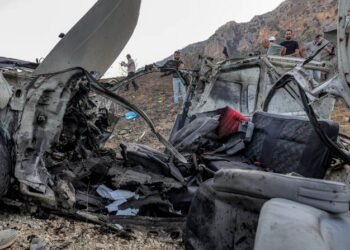

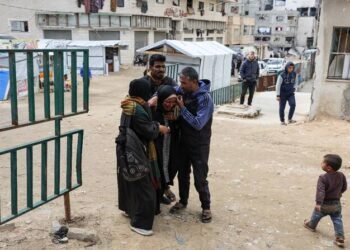

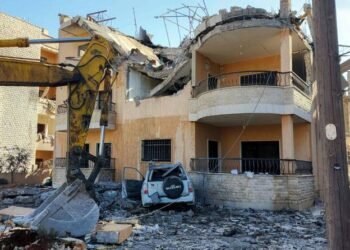
 United Arab Emirates Dirham Exchange Rate
United Arab Emirates Dirham Exchange Rate